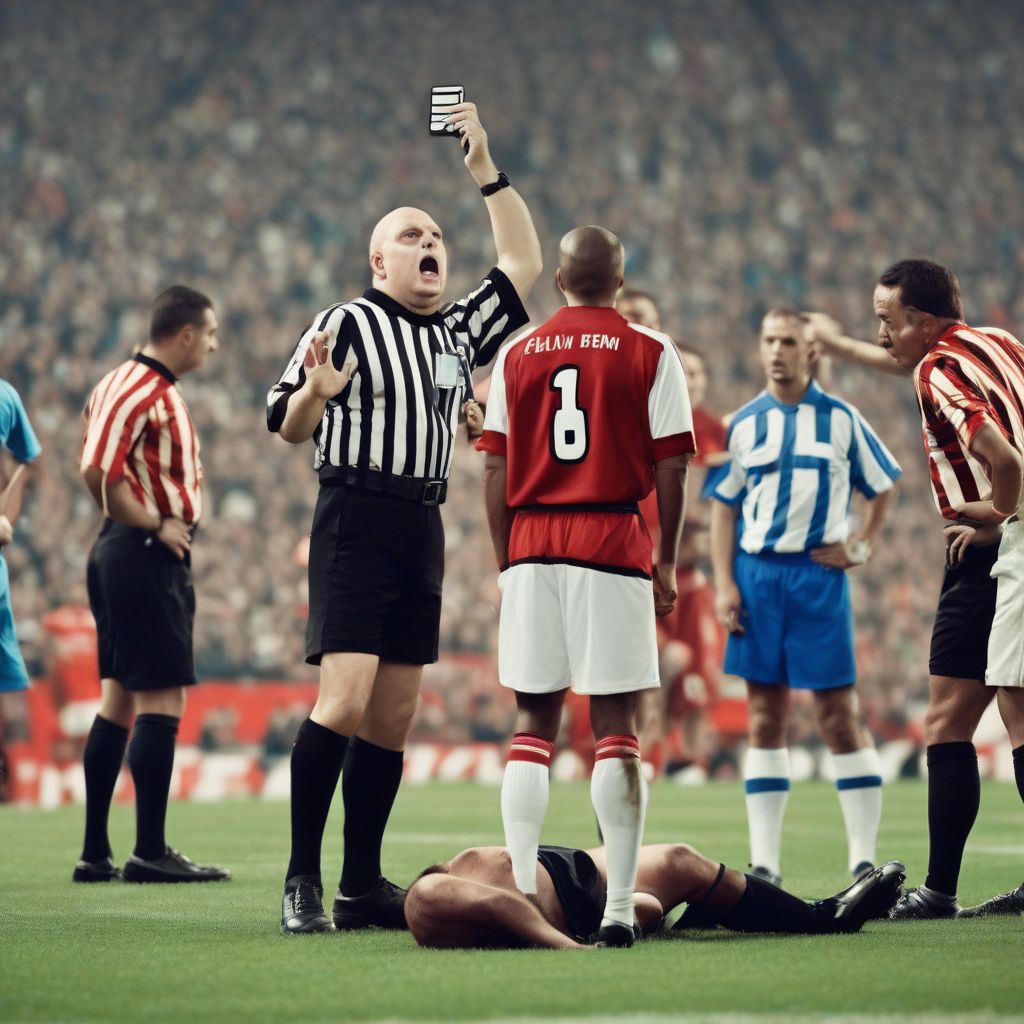“It ain’t over ’til it’s over,” Yogi Berra famously said. And in the world of sports, sometimes “over” comes with a hefty dose of controversy, thanks to a referee’s call. From game-changing penalties to disallowed goals, questionable decisions by officials have sparked outrage, debate, and even conspiracy theories throughout history. Let’s dive into some of the most controversial referee decisions that have left fans screaming at their screens and athletes shaking their heads in disbelief.
The Hand of God and Other Footballing Follies
Football, or soccer as it’s known in some parts of the world, has seen its fair share of refereeing controversies. Perhaps the most infamous is Diego Maradona’s “Hand of God” goal against England in the 1986 World Cup quarter-final. Maradona punched the ball into the net, unseen by the referee, securing a victory for Argentina. This moment became a symbol of both brilliance and deception, forever etched in football history.
Another controversial incident occurred in the 2010 World Cup. Frank Lampard’s clear goal for England against Germany was disallowed, despite the ball crossing the line. This incident highlighted the need for goal-line technology, which was eventually implemented.
Controversial Calls in Other Football Codes
Even in American football, refereeing decisions can be game-changers. The “tuck rule” game between the Oakland Raiders and the New England Patriots in the 2001 AFC Divisional Playoffs is a prime example. The ruling, which stated that a quarterback’s forward motion with the ball stops when he begins to tuck it back towards his body, led to a Patriots victory and fueled years of debate.
Questionable Calls on the Court and Diamond
Beyond football, controversial calls plague other sports. In basketball, the 2002 Western Conference Finals between the Los Angeles Lakers and the Sacramento Kings were marred by accusations of biased officiating, favoring the Lakers. Game 6, in particular, drew intense scrutiny, with many believing the Kings were robbed of a chance to advance.
Baseball, a sport often defined by inches, is no stranger to close calls. In 1985, the infamous “Don Denkinger call” in the World Series cost the St. Louis Cardinals a crucial game against the Kansas City Royals. Denkinger incorrectly called Jorge Orta safe at first base, shifting the momentum and ultimately leading to the Royals’ victory.
The Human Element and the Quest for Accuracy
These controversies underscore the human element in officiating. Referees are fallible, and even with the best intentions, mistakes happen. The pressure of making split-second decisions in high-stakes situations can lead to errors in judgment.
 Controversial Referee Decision in Football
Controversial Referee Decision in Football
The Impact of Technology and the Future of Officiating
Technology has played an increasingly important role in minimizing refereeing errors. Goal-line technology, instant replay, and the Hawk-Eye system in tennis are just a few examples of how technology has improved officiating accuracy. However, the integration of technology is not without its challenges, and the debate about how much technology should influence sports continues.
Balancing Tradition and Progress
While technology can help improve accuracy, it also raises questions about the balance between tradition and progress. Some argue that the human element, with all its flaws, is an integral part of the sport. Others advocate for more technology to ensure fairness and accuracy.
The Psychological Impact on Athletes and Fans
Controversial referee decisions can have a significant psychological impact on both athletes and fans. Athletes may feel cheated, demoralized, and lose confidence in the fairness of the game. Fans can experience frustration, anger, and a sense of injustice. These emotions can fuel rivalries, intensify debates, and even lead to unruly behavior.
Accepting the Inevitable: Controversy as Part of the Game
Despite advances in technology and training, controversial referee decisions are likely to remain a part of sports. The fast-paced nature of competition, coupled with the human element of officiating, makes errors inevitable. Accepting this reality, while striving for fairness and accuracy, is crucial for both athletes and fans.
Conclusion
From the “Hand of God” to the “tuck rule,” controversial referee decisions have shaped the narratives of countless sporting events. While technology continues to offer solutions for increased accuracy, the human element remains a crucial, and sometimes flawed, component of sports. These controversies, though frustrating, ultimately contribute to the drama and unpredictability that make sports so compelling. What are some of the most controversial calls you’ve witnessed? Share your thoughts and experiences in the comments below! Let’s continue the conversation and debate the calls that have defined sporting history.



